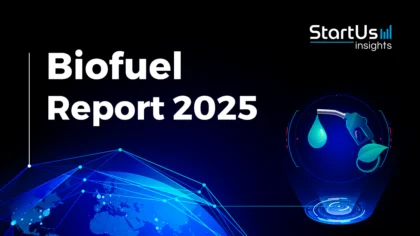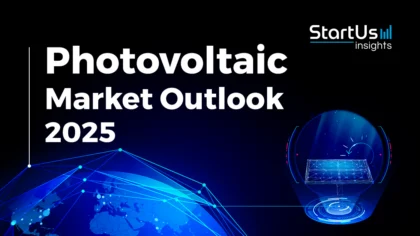Our Innovation Analysts recently looked into emerging technologies and up-and-coming startups working on solutions for the energy sector. As there is a large number of startups working on a wide variety of solutions, we decided to share our insights with you. This time, we are taking a look at 5 promising silicon anode solutions.
Heat Map: 5 Top Silicon Anode Solutions
Using our StartUs Insights Platform, covering 1.116.000+ startups & emerging companies, we looked at innovation in the field of energy. For this research, we identified 40 relevant solutions and picked 5 to showcase below. These companies were chosen based on a data-driven startup scouting approach, taking into account factors such as location, founding year, and technology among others. Depending on your specific criteria, the top picks might look entirely different.
The Global Startup Heat Map below highlights 5 startups & emerging companies developing silicon anode solutions. Moreover, the Heat Map reveals regions that observe a high startup activity and illustrates the geographic distribution of all 40 companies we analyzed for this specific topic.
TRION Energy – Silicon-Graphite
Global trends for electrification and renewable energy generation are driving demand for highly durable lithium-ion (Li-ion) batteries to power electric vehicles (EVs), solar cells, and smart grids. As conventional graphite anodes start to approach the limit of their performance, battery manufacturers consider combining them with silicon, a high-energy material with large-volume expansion issues during cycling. Startups across the world work to balance the trade-offs of silicon-graphite for improved density and reasonable cycle life.
Canadian startup TRION Energy aims at resolving the challenges of adding silicon to graphite with its low-cost “drop-in” SiMoGraph technology. This proprietary technology sustains decent dispersion and attachment rates, which results in higher battery productivity. Besides, the solution does not require any expensive retooling of manufacturing facilities.
Advano – Scalable Silicon Anodes
Since silicon possesses around 10 times stronger energy storage properties than graphite, it is becoming a decent alternative for Li-ion cell anodes. However, manufacturers usually have to compromise between energy density and capacity cost when integrating silicon into batteries. Modern startups develop scalable silicon anodes that offer seamless material integration and durable operation.
The US-based startup Advano intends to replace graphite anodes in contemporary lithium-ion batteries with its patented scalable silicon solution. The startup utilizes surface functionalization technology to controllably enhance silicon characteristics and optimize their integration with lithium and electrolyte. The Advano Anode works with conventional batteries and is flexible for different energy density, cyclability, and charging speed requirements.
Black Diamond Structures – Silicon Performance Enhancers
Generally, the potential of full-fledged introduction of high-performing silicon in Li-ion batteries is inhibited by problems of its low electrical conductivity, troublesome size swelling, and associated lower cycling lifetime. This is where nanotechnology startups that develop silicon performance enhancers come into the picture. They develop nanocomposites or specialty additives, aimed at making silicon-containing batteries accumulate more energy, charge faster, and successfully operate for longer.
The US-based startup Black Diamond Structures offers innovative nanomaterial products. The Molecular Rebar carbon nanotubes technology boosts the performance of silicon-based anodes. Thanks to proprietary untangling and alignment methodology, the solution allows for higher silicon content, stronger mechanical and thermal resistance, as well as more durable cycling.
Enwires – Silicon Nanowires
One additional method of incorporating silicon into Li-ion cells implies the use of silicon nanowires. Unfortunately, existing nanowire production facilities incur immense capital and material expenditures, hindering increasing scale. Startups and emerging materials companies develop new silicon nanowires manufacturing practices, capable of utilizing silicon’s potential and producing high-performing cells.
French startup Enwires develops silicon nanowires for Li-ion battery anodes. The startup utilizes its patented manufacturing process to create cost-effective and accurately calibrated nanowires, suitable for large-scale facilities. The startup primarily targets electric vehicles and energy storage markets.
Nanospan – Silicon-Graphene
Manufacturers also resort to graphene to balance silicon content inside the anode. It grants silicon higher thermal conductivity, greater flexibility, improved mechanical resistance, and decent stability during charge and discharge. Emerging companies develop new silicon-graphene alloys to overcome silicon utilization issues and meet the demands of modern energy markets.
Indian startup Nanospan manufactures graphene-functionalized silicon anode for lithium-ion batteries, called Si-Nanotrode. The startup’s proprietary design enlarges the life cycle, reduces expansion, ensures lightweight, as well as improves energy density and Coulombic efficiency. Nanospan’s batteries find applications in grid & renewable energy domains and even in other industries.
What About The Other 35 Solutions?
While we believe data is key to creating insights it can be easy to be overwhelmed by it. Our ambition is to create a comprehensive overview and provide actionable innovation intelligence so you can achieve your goals faster. The 5 silicon anode startups showcased above are promising examples out of 40 we analyzed for this article. To identify the most relevant solutions based on your specific criteria, get in touch.







